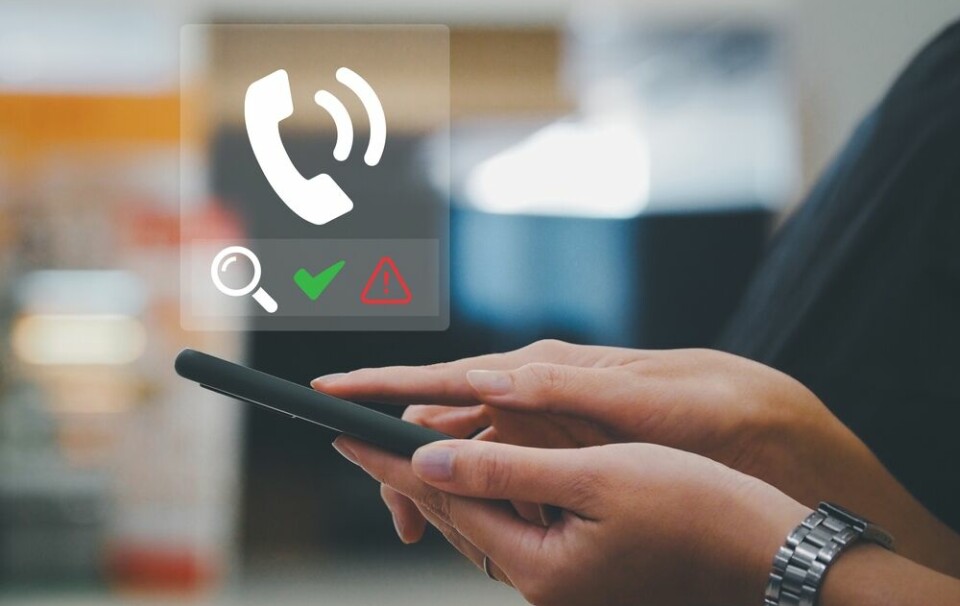-
Ryanair’s presence confirmed at Tours-Val de Loire airport
Bookings for summer flights to Marseille and Morocco are already open
-
Peak in flu cases in France expected in January
Pressure on hospitals is expected to intensify after the holiday period
-
France sees coldest Christmas Day in 15 years as ‘grand froid’ plan triggered
Sharp drop in temperature sees cold weather plan activated in more than a dozen departments
Are Britons making a lot of demands on French prefectures?
We clarify which French officials are having to deal with different British applications post-Brexit

Some French MPs raised concerns that a lot of Britons are making residency card applications to prefectures and taking up their time - but why would this be?
The issue was raised in discussions about whether or not France’s immigration bill should have an article in it to help British people who live in the UK and have a second home in France and who are currently subject to the basic EU rule of '90 days in the Schengen area in any 180-day period' (editor's note: France is able to set its own rules for access specifically to its own national territory).
One MP suggested that the Britons are making many demands on prefectures for residency cards, and so this is a possible argument for doing something to ease the situation.
As we explain in this article, British people are doubtlessly making significant demands on French officials, but in the case of second-home owners, this especially concerns the French consulate in London and its contractors, TLSContact, which have three UK offices that collect paperwork from visa applicants.
When do prefectures process second-home owner requests?
With regard to prefectures, we have previously written of the rare possibility that exists for British second-home owners or other temporary visitors to France, to ask their local French prefecture to extend their right to stay beyond three months due to exceptional circumstances such as urgent health issues requiring treatment in France.
Read more: In what cases can I stay longer than 90 days?
Otherwise, the main reason that we are aware of for a prefecture to have to deal with a Briton who does not plan to settle permanently in France is where the Briton is the spouse of an EU (but not French) national and wants to stay with them in France for more than three months.
The Interior Ministry previously told us that these Britons are able to come to France with no formal visa application, but they should then apply in France for a residency card if they want to stay on longer, even if not settling down permanently.
Spouses of French people wanting to come to France with them for more than three months are, instead, required to apply for a special free long-stay visa before coming to France.
Read more: Can spouses of EU citizens stay for more than 90 days?
The other main reason for applications from Britons to be dealt with by French prefectures is when they have moved to France with a normal long-stay visa but are now applying for residency cards to stay on longer (typically at the end of their first year).
In particular, British retirees who move to France must now apply for a carte de séjour ‘visiteur’ which must be renewed annually, so their dossiers will have to be processed repeatedly by their prefectures.
The initial application for residency cards is now usually made online, but it is still prefectures that process the dossiers.
What is the main issue facing most British second-home owners?
However, the main issue our second-home owner, UK-resident, readers report is that, post-Brexit, they are subject to the basic EU rule of not staying in the Schengen area, including France, for more than 90 days in any rolling 180-day period.
This is the ‘default’ situation as ‘third country citizens’, and nothing was provided in the Brexit Withdrawal Agreement for British people who had not moved to France on a settled basis.
The ‘90/180 days rule’ means that they can come to France without any formalities but must leave France after three months maximum (or less if they have had other recent work-related or personal visits to other parts of the EU).
This causes issues for many British families who used to come for up to half of the calendar year to spend time at second homes as EU citizens.
The only solution most of these Britons now have is to apply for a temporary long-stay visa before they go to France to visit their homes. This is done via the website france-visas.gouv.fr and the visa is for a named, one-off period, generally between four to six months and is formalised with a sticker placed in their passport.
These visas are not typically given for a year, because coming for a year raises issues as to whether the person is moving to settle in France and become a French tax resident and join France’s social security system.
What are the next steps in the visa process?
After applying on the visa website, the applicant then has to use a second website to arrange an in-person meeting at TLSContact, a private contractor for the French consular services in the UK.
Many people, including The Connexion team, report that there are frequent bugs and it can be difficult even to access the website. Furthermore, readers report that it is hard to obtain an appointment as not enough are on offer, and they must log on repeatedly on different days to try to identify one.
They must then travel to one of the three TLSContact offices taking supporting paperwork for their application, proving their financial means, where they will stay in France, their healthcare arrangements (Ehics/Ghics are acceptable), the reason for their planned stay etc. They also hand over their passport.
For someone living in more remote parts of the UK, this could mean about a 900km round trip, and for Northern Irish residents it would mean a ferry or plane trip to England to visit Manchester.
After the meeting, they must wait several weeks while TLSContact forwards the application to officials at the French Consulate in London for detailed processing.
If approved, the person must either return to TLSContact to collect their passport with a visa sticker in it, or pay extra for courier return.
Currently, on top of the €99 visa fee, TLSContact charges a €55 processing fee, and charges €30 for courier return.
The process is essentially the same as for people who want to move to live in France, and many readers have stated that having tried it once, they could not face doing it again.
Related articles
Normandy senator: British second-home owners should not be penalised by Brexit
























